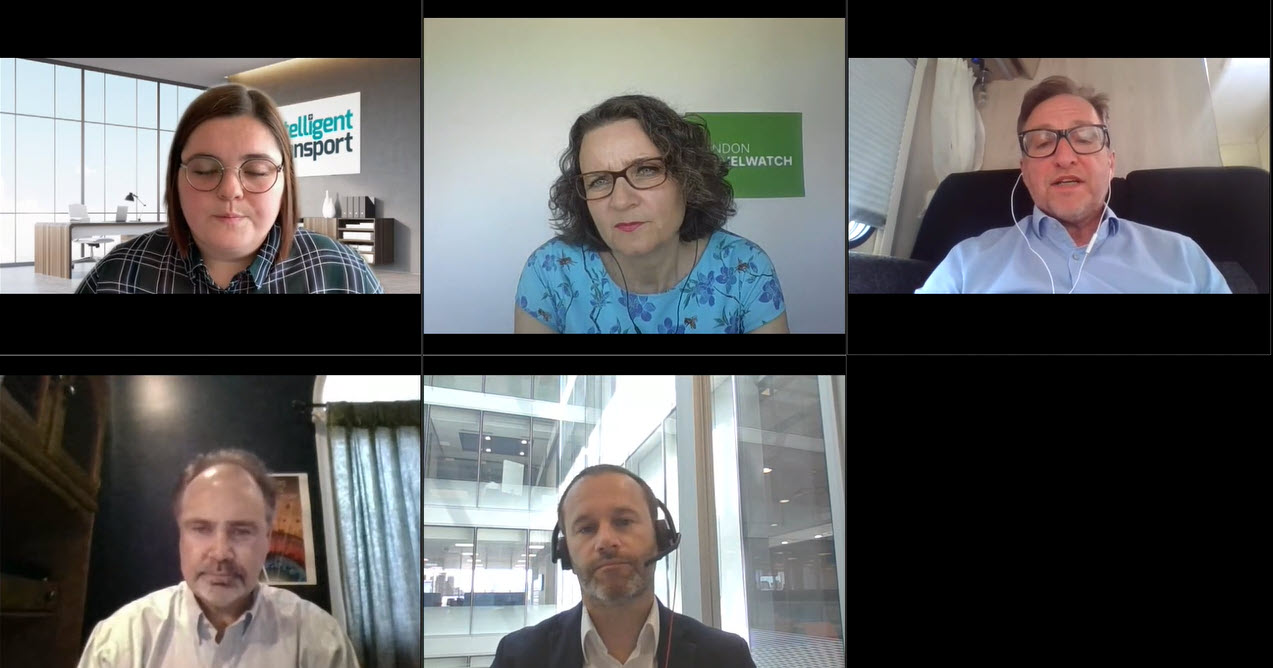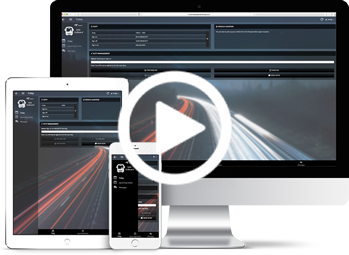Decarbonising the Bus Network
With the government committing to ambitious sustainability targets, decarbonisation of the bus network is a hot topic. It was discussed at length during a recent hosted by Intelligent Transport and Trapeze Group.
The State of Play
“In the last two years, we’ve gotten real about [decarbonisation] as a country… we now have a national transport decarbonisation plan with clarity on what the numbers and the challenges are.”
This was a statement made by Warwick Goodall regarding the current climate of decarbonisation in the UK. Transport is the single biggest sector of carbon emissions in the UK, with buses and coaches contributing three million tonnes of CO². What can be done to reduce these numbers?
Encouraging Bus Travel
According to research cited by Green Journeys, one double-decker bus can take up to 75 cars off the road. This establishes the importance of public transport as a low-carbon way of transporting passengers. The challenge lies with getting people out of cars and onto the bus.
Warwick Goodall said that, “buses are the green arteries of the cities.” Warwick’s point was that buses can distribute passengers in a way that is more environmentally friendly than a private car or taxi. Not only in the inner-city – these arteries must spread to the suburbs and beyond. As Warwick stated, “people in the suburbs need to feel like the bus is a real option for them, not just if they’re travelling in the centre of the city.”
Emma Gibson of London TravelWatch spoke about the Zip Card scheme in London which allows free travel for under 18s. Emma mentioned research commissioned by the Department for Transport in 2014, which concluded that the Zip Card has, “reduced road traffic injuries, increased bus travel, and reduced car travel.”
This scheme demonstrates that there are ways to encourage passengers to use public transport. As stated by Emma Gibson, the Zip Card programme, “normalised bus travel amongst younger people and [when they grew up] they were less likely to own a car.” Warwick Goodall expanded on this point by saying, “these kids are going to be the conscious consumers of the future.”
Decarbonising the Bus
According to Warwick Goodall, “we need to set the foundations in the 2020s so that in the 2030s people have the green and decarbonised transport network that they need.”
Through policies such as the Zero Emission Bus in Regional Areas (ZEBRA) scheme, where £198 million has been awarded in funding to support up to 943 zero-emissions buses in areas outside of London, the UK is in a strong position to deliver a decarbonised transport system. Plus, with plans for Coventry to become the first all-electric bus city by 2025, it’s likely that more cities will follow suit.
At the depot, it’s more important than ever to know where the energy that is charging the buses is coming from. In the words of Warwick Goodall, “how do we make sure London and other cities have access to an electricity generation mix that is green through wind, solar and nuclear?” The UK is heading in the right direction, with zero-carbon power in Britain’s electricity mix growing from less than 20% in 2010 to nearly 50% in 2021.
Beyond infrastructure, Warwick Goodall said there also needs to be, “technology to optimise the routes.” By utilising software, such as Trapeze’s Intelligent Transport Systems (ITS) or the Novus family of products, that provides real-time data, traffic trends and patterns can be identified. This information can be used to adjust the schedule, reducing the amount of time that buses are spent idling and improving air quality.
Conclusion
Whilst there is still work to be done to create an entirely green transit system, the UK has taken great strides in achieving a decarbonised bus network. With the pledge to provide 4,000 zero-emission buses by 2024, millions in funding has already been allocated for 943 of these buses to be delivered outside of London.
As the “green arteries of the city,” buses can transport passengers to places that fixed rail can’t reach. They are able to take up to 75 cars off the road, making them one of the most efficient and lowest carbon methods of transport.
By encouraging bus travel amongst the public, and ensuring that the buses themselves are eco-friendly, the UK can create a bus network that is efficient and sustainable for generations to come.
To discuss the decarbonisation of the bus network further, please get in touch, and you can watch the entire webinar in the video below.
Bus to the Future: Imagining public transport in 2030 and beyond – and the changes needed now to ensure we get there
The Bus to the Future Webinar Panel

Clockwise from top left:
Leah Hockley, Editor of Intelligent Transport (Moderator)
Emma Gibson – CEO of London TravelWatch
Paul Attenborough – Programme Director at Trapeze Group
Warwick Goodall – Member of PA’s Management Group at PA Consulting
Paul Comfort – Host of Transit Unplugged Podcast
Here to help
Contact us and speak with one of our specialists:
+44 (0) 808 281 1039
More Info
About Us | Careers | Contact Us | Legal | Privacy
Trapeze Group respects your privacy

